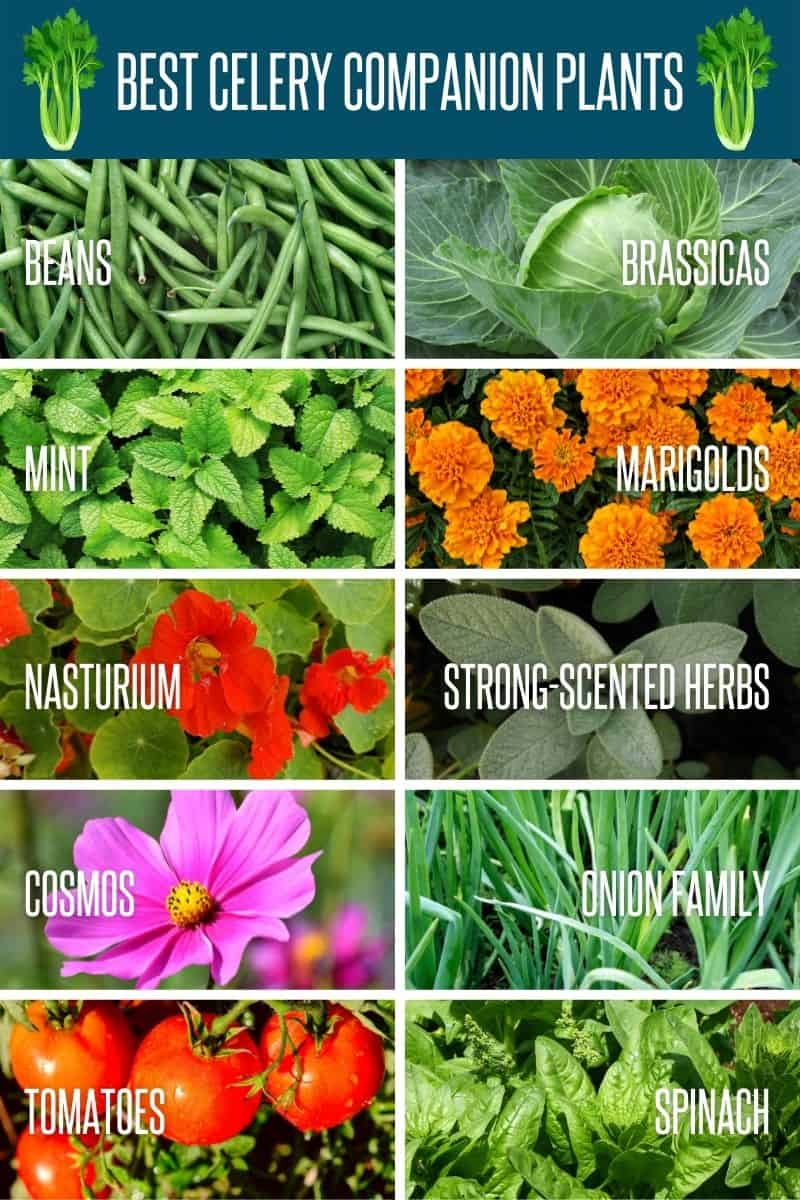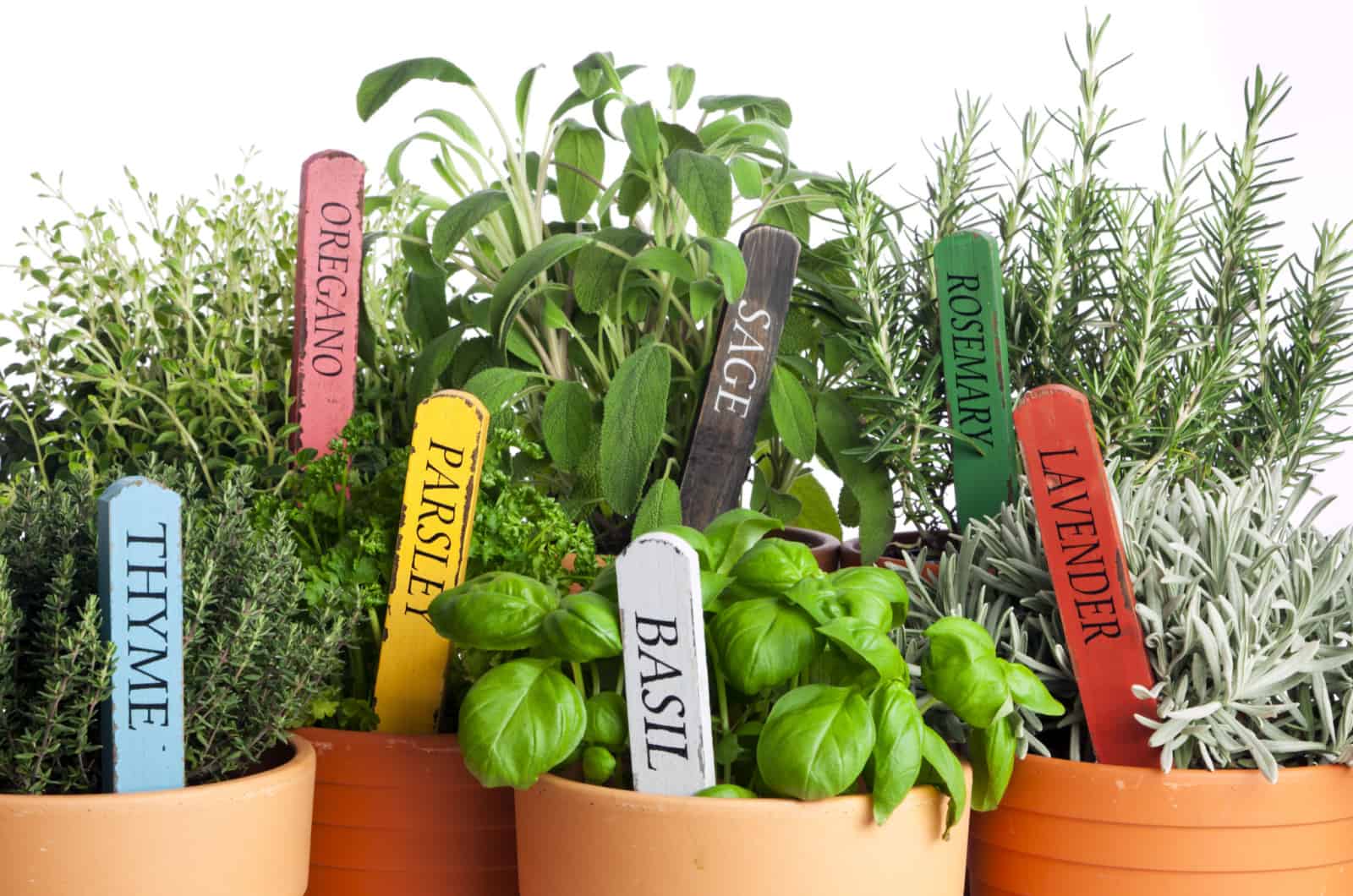Grow Better Celery With These Companion Herbs
Grow Better Celery with These Companion Herbs
Celery is a delicious and versatile vegetable that can be enjoyed in a variety of dishes. It's also a relatively easy crop to grow, but there are a few things you can do to help it thrive. One of the best ways to improve your celery's growth and flavor is to plant companion herbs nearby.
Companion planting is a gardening technique that involves planting certain plants together to benefit each other. Some plants, for example, can help to deter pests, while others can improve the flavor of their neighbors. When it comes to celery, there are a few herbs that are particularly beneficial.
Marigolds
Marigolds are one of the best companion plants for celery. They have a strong scent that repels pests such as aphids, beetles, and nematodes. Marigolds also help to improve the soil quality, which can benefit the growth of celery.
Chamomile
Chamomile is another excellent companion plant for celery. It has a calming effect on the soil, which can help to reduce stress on the celery plants. Chamomile also helps to improve the flavor of celery, making it taste sweeter and more aromatic.
Mint
Mint is a powerful herb that can repel a variety of pests, including rabbits, deer, and insects. It also helps to keep the soil cool and moist, which is ideal for celery. Mint can be a bit invasive, so it's best to plant it in a pot or at the edge of your garden.
Nasturtiums
Nasturtiums are a beautiful and colorful flower that also makes a great companion plant for celery. They have a strong scent that repels pests such as aphids and beetles. Nasturtiums also help to attract beneficial insects such as ladybugs, which can help to control pests.
Thyme
Thyme is a versatile herb that can be used in a variety of dishes. It also makes a great companion plant for celery. Thyme helps to improve the flavor of celery and also helps to repel pests.
Basil
Basil is another popular herb that can be grown alongside celery. It has a strong scent that repels pests such as mosquitoes and flies. Basil also helps to improve the flavor of celery and can be used in a variety of recipes.
Dill
Dill is a fragrant herb that can help to improve the flavor of celery. It also helps to attract beneficial insects such as bees and butterflies. Dill can be a bit invasive, so it's best to plant it in a pot or at the edge of your garden.
Sage
Sage is a hardy herb that can be grown in a variety of climates. It has a strong scent that repels pests such as aphids and beetles. Sage also helps to improve the flavor of celery and can be used in a variety of recipes.
Oregano
Oregano is a flavorful herb that can be used in a variety of dishes. It also makes a great companion plant for celery. Oregano helps to improve the flavor of celery and also helps to repel pests.
Rosemary
Rosemary is a hardy herb that can be grown in a variety of climates. It has a strong scent that repels pests such as aphids and beetles. Rosemary also helps to improve the flavor of celery and can be used in a variety of recipes.
Bee Balm
Bee balm is a beautiful and fragrant herb that attracts beneficial insects such as bees and butterflies. It also helps to improve the flavor of celery and can be used in a variety of recipes.
Celery is a delicious and versatile vegetable that can be enjoyed in a variety of dishes. But did you know that there are certain herbs that can help to improve the flavor and growth of celery?
Some of the best companion herbs for celery include:
- Mint: Mint has a strong scent that can help to repel pests from celery plants. It can also help to improve the flavor of celery.
- Sage: Sage is another herb with a strong scent that can help to repel pests. It can also help to improve the flavor of celery.
- Dill: Dill is a flavorful herb that can help to enhance the taste of celery. It can also help to deter rabbits and deer from eating celery plants.
- Oregano: Oregano is a versatile herb that can be used in a variety of dishes. It can also help to improve the flavor of celery.
- Rosemary: Rosemary is a fragrant herb that can help to improve the flavor of celery. It can also help to repel pests.
If you're looking to grow the best celery possible, I encourage you to consider planting some of these companion herbs alongside your celery plants. You'll be glad you did!
For more information about celery companion herbs, I recommend visiting Gardenia Inspiration. This website has a wealth of information on the topic, including a list of the best companion herbs for celery, as well as tips on how to plant and care for these herbs.
FAQ of celery companion herbs
Q: What are the best companion herbs for celery?
A: The best companion herbs for celery are those that have strong scents that can repel pests and attract beneficial insects. Some of the best companion herbs for celery include:
- Marigolds
- Chamomile
- Mint
- Nasturtiums
- Thyme
- Basil
- Dill
- Sage
- Oregano
- Rosemary
These herbs can help to protect celery from pests such as aphids, beetles, and moths. They can also help to attract beneficial insects such as ladybugs, hoverflies, and bees.
Q: What are the benefits of planting companion herbs with celery?
A: There are several benefits to planting companion herbs with celery. These benefits include:
- Pest control: The strong scents of companion herbs can help to repel pests that can damage celery plants.
- Attraction of beneficial insects: Companion herbs can also attract beneficial insects that can help to control pests.
- Improved flavor: Some companion herbs, such as chamomile, can actually improve the flavor of celery.
- Increased pollination: Companion herbs can also attract pollinators, such as bees and butterflies, which can help to increase pollination of celery plants.
Q: What are some herbs that should not be planted near celery?
A: There are a few herbs that should not be planted near celery. These herbs include:
- Carrots: Carrots and celery belong to the same family, and they can suffer from many of the same pests and diseases.
- Corn: Corn and celery are both heavy feeders, and corn can out-compete celery for necessary nutrients.
- Parsley: Parsley and celery can compete for water and nutrients.
- Potatoes: Potatoes and celery can both attract the same pests.
- Turnips: Turnips and celery can both attract the same pests.
Q: How far apart should celery and companion herbs be planted?
A: The distance between celery and companion herbs will vary depending on the size of the plants. However, as a general rule, you should plant celery and companion herbs at least 12 inches apart.
Image of celery companion herbs
- Marigolds: Marigolds are a great companion plant for celery because they repel pests. The strong scent of marigolds is said to be unpleasant to many pests, including aphids, beetles, and carrot flies.

- Chamomile: Chamomile is another good companion plant for celery. It's thought that when interplanted, chamomile can improve the flavor of celery. Chamomile also helps to repel pests and attract beneficial insects.

- Mint: Mint is a popular herb that can be grown alongside celery. Mint helps to repel pests and attract beneficial insects. It also helps to improve the flavor of celery.

- Nasturtiums: Nasturtiums are a colorful and attractive flower that can also be grown alongside celery. Nasturtiums help to repel pests and attract beneficial insects. They also help to improve the flavor of celery.

- Thyme, basil, dill, sage, oregano, rosemary, bee balm: These herbs are all known to be beneficial to celery plants. They help to repel pests, attract beneficial insects, and improve the flavor of celery.

Post a Comment for "Grow Better Celery With These Companion Herbs"